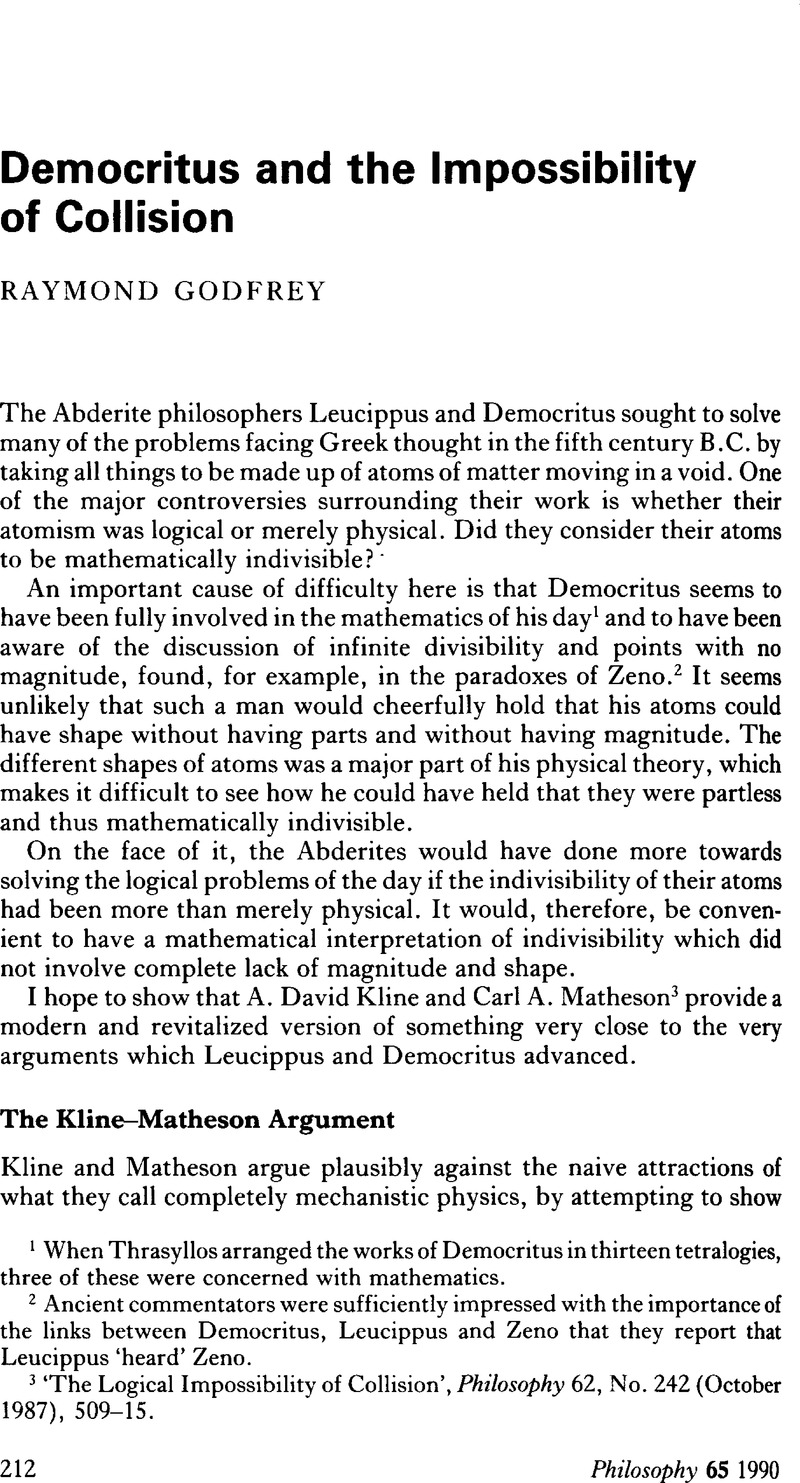Article contents
Democritus and the Impossibility of Collision
Published online by Cambridge University Press: 30 January 2009
Abstract

- Type
- Discussion
- Information
- Copyright
- Copyright © The Royal Institute of Philosophy 1990
References
1 When Thrasyllos arranged the works of Democritus in thirteen tetralogies, three of these were concerned with mathematics.
2 Ancient commentators were sufficiently impressed with the importance of the links between Democritus, Leucippus and Zeno that they report that Leucippus ‘heard’ Zeno.
3 ‘The Logical Impossibility of Collision’, Philosophy 62, No. 242 (10 1987), 509–15.Google Scholar
4 Strictly speaking there is no evidence that anyone before Aristotle hit upon the idea of the finite sum of an infinite series. If this element of our modern conceptual toolkit was absent from the fifth century, it seems to have been the only one.
5 Aristotle, , De Generatione et Corruptione I.8.324bGoogle Scholar mentions this doctrine as part of the background against which the Abderite philosophy developed.
6 Cf., e.g., Aristotle, , Metaphysics I.4.985b.Google Scholar
7 Simplicius, , Physics 139Google Scholar, includes this as part of a long argument of Zeno.
8 Simplicius, , De Caelo 242.Google Scholar
9 Cf. Williams, C. J. F., ‘The Ontological Disproof of the Vacuum’, Philosophy, 59, No. 229 (07 1984), 382–4.CrossRefGoogle Scholar
10 Simplicius, , De Caelo 294, cites Aristotle for this.Google Scholar
11 Cf. Aristotle, Metaphysics I.4.985b.Google Scholar
12 Aristotle, , De Generatione et Corruptione I.2.316a suggests that Democritus would have been interested in this sort of consideration.Google Scholar
13 Cf. the argument of Zeno already mentioned in note 7, which is concerned with the effect or lack of effect of adding a single point to an extended body and of removing a single point.
- 2
- Cited by


